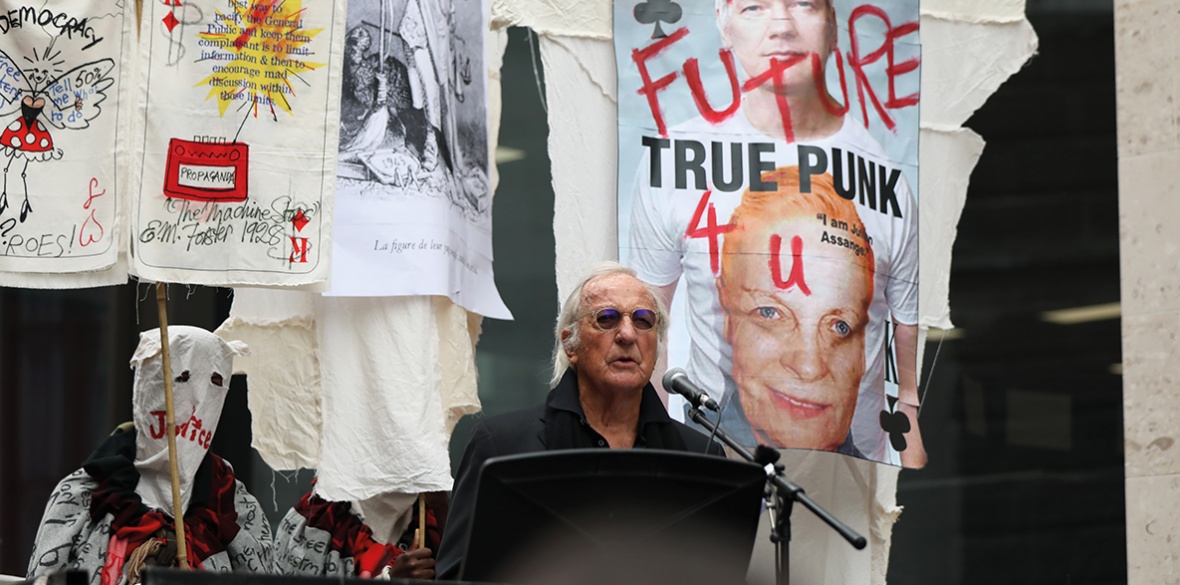This is the last article you can read this month
You can read more article this month
You can read more articles this month
Sorry your limit is up for this month
Reset on:
Please help support the Morning Star by subscribing here
THE mainstream media is focused on a 24-hour cycle of the current news. Historical context and memory is at best partial.
So, for example, when it comes to Israel’s genocide in Gaza the reference point is the Hamas attack of October 7. The wider picture of 75 years since the Nakba when Palestinians were forced off land that became Israel, and the many military actions of the Israeli government since do not feature. If they did a very different understanding of what is happening now might arise.
Another example in a different way is the recent death of John Pilger, one of the leading investigative journalists of the last 50 years. Such journalism is essential if democracy is to function in anything like an effective way. Pilger received many tributes, but from Rishi Sunak and Keir Starmer there was silence. They apparently could not recall anything worthy of note about the journalist.
A further example relates to recent reports that Tony Blair was preparing to help Israel locate countries to which residents of Gaza might be deported. Like much of what appears in the Israeli media, this was a lie and unusually the Tony Blair Institute issued a statement saying it was.
The history did not receive a mention. Blair was the Middle East peace envoy, to little obvious positive result. However that certainly meant that he met Benjamin Netanyahu and he told the Financial Times before Christmas that he had recently done so. After all, why wouldn’t the Israeli leader want a chat with one of the leading warmongers of recent times?
Calling to mind events of the past can of course be an exercise in nostalgia. Rose-tinted spectacles promoting a view that things aren’t what they used to be.
By contrast, promoting historical memory is a radical political act. The process brings to current attention matters the rich and powerful would not only prefer to forget but will do what they can to make sure they are forgotten.
A couple of examples underline the point.
On Monday August 16 1819 in central Manchester, the yeomanry, soldiers on horseback with sabres, attacked a 60,000-strong protest calling for the vote, leaving numbers dead and injured.
It’s known today as the Peterloo Massacre. It is remembered because generations of socialists and trade unionists have made sure that it is. Every year events are held to mark the massacre.
The 200th anniversary in 2019 found Times columnists arguing that Peterloo was not important enough to be remembered. That simply underlined why it is as a reminder of what the government will do to stop democratic protest if it thinks it can get away with it.
Much more recently, 2024 marks that 40th anniversary of the 1984-5 miners’ strike. It will be marked by many events — and rightly so. How it will be remembered is the key point.
Will it be as a tenacious struggle by working people to defend jobs and communities which in being lost reflected the devastation that Thatcher and her successors have caused? Or will we find comfortable commentators arguing that it was all a waste of effort and the modernisation dictated that the pits must go and the jobs and destruction were just collateral damage?
There certainly won’t be an official apology from Sunak and an acceptance from Starmer that the miners’ strike, which he was an active supporter of, is something that should be remembered is only slightly more likely.
The fight for historical memory is not just one for historians but for all active on the left and the labour movement in 2024.
Keith Flett is a socialist historian. Follow him on X @kmflett.









